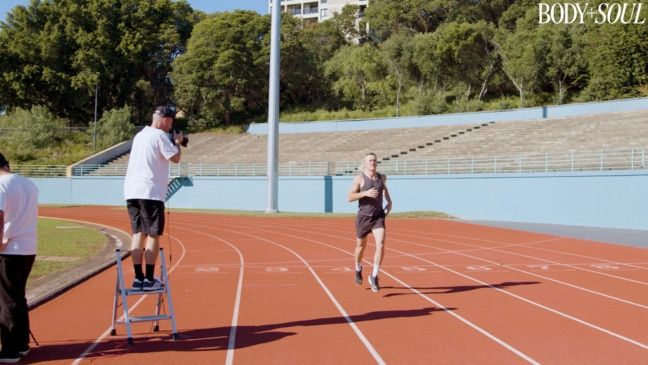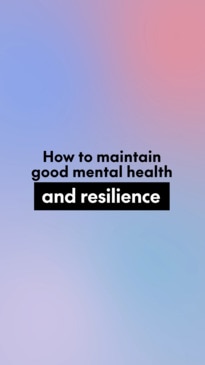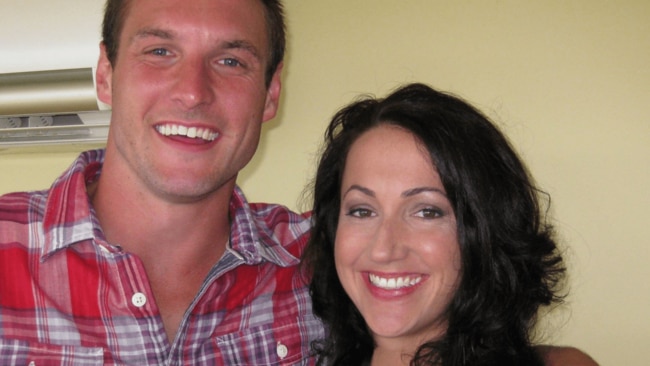'I went to a two week silent grief retreat in Colorado - this is what I learnt'
We all cope with loss differently

Lifestyle
Don't miss out on the headlines from Lifestyle. Followed categories will be added to My News.
Former physiotherapist and author Jessica Maguire shares her experience of visiting a grief retreat to tackle her struggles after tragically losing her older brother.
When I was 32, I received a phone call that no one wants to pick up. My older brother Sam - who was 34 at the time - had died by suicide. Sam was my safe space, my mate, my cheerleader, and my rock. News of his death was completely unexpected, and for months, I felt like I was falling as my world bottomed out from underneath me.
It’s difficult to put into words what grief feels like - and in fact, words are not always the most helpful tool when you’re in that state. But in the aftermath of Sam’s death, the initial pain of his loss manifested as constant anxiety in my body, and then weeks later a fierce desire to lean heavily into other aspects of my life that I could control, like achieving in my career.
Short term, I could put my foot on the gas, but long term, running from the reality that life as me and my family had known it until that point in time had irrevocably changed was not going to work.

In many ways, grief is a lifelong process, but how you actually experience it in your nervous system can differ dramatically if it’s unattended to. A two-week silent grief retreat in Colorado helped me kickstart a deeper healing process and provided the space to consider that my go-to pattern of overachieving wasn’t going to help me here.
There was something so fundamentally healing about being in the presence of others that I knew, even in our shared silence, were dealing with similar levels of profound loss.
Together, as a loving, temporary community, we sought “true refuge” in our interconnectedness through the power of slowing down, sitting, and meditating with one another to gently work through our painful emotions and process what’s happening in our bodies.
They say that suffering equals pain times resistance, and although when it comes to deep, profound loss, nothing can change what has happened, you do have the power to choose where you seek refuge.

Non-judgement of how people cope with loss and grief is critical, but having explored this topic in both my personal life and as a nervous system educator, I can tell you that alcohol, scrolling online, under-eating or overeating, excessive gaming, adrenalin-seeking behaviours, or acting out with loved ones are short term pain relievers. Unlike the “true refuge” of a healing community, these “false refuges” don’t provide the space to feel what we need when it comes to loss and grief.
That said, trying to act like everything is okay too soon also isn’t the answer. We only push ourselves further and further into nervous system dysregulation if we try to get back into our “old” lives too soon. Perhaps as a community, the next phase of suicide awareness beyond the initial breaking through the taboo of talking openly about it, is that we need to learn to accept the primal, messy aspects of grief, and hold space for other people.
After the retreat and back in the real world, I had one friend who would get in my bed and sleep next to me on nights when I didn’t want to be alone, while another called me every day at lunch even when I wasn’t ready to answer the phone.
Knowing what I know now about how the nervous system actually works, these were beautiful ways of telling my nervous system - via my social engagement system and through co-regulation - that there were people around me who loved and supported me.

When grieving, people are not only processing the pain of loss, they are also dealing with the fact that they've just lost a deep attachment bond with someone who signalled warmth, safety and love in the world.
Coaxing that sense of safety back online for people may take time, but it is essential for healing their nervous systems and bringing them back into the community by activating the social engagement system. This is formed in part by our vagus nerve and is a portal to emotional regulation - a place where we are most resourced to process loss and hurt.
When it comes to sensing what’s happening in the nervous system in ourselves and others, this is a skill that can be developed. For example, when the sympathetic nervous system is activated, people may feel angry, anxious or overwhelmed. In ourselves and others in the wake of grief, it can look like fixating on “what ifs”, physical illnesses (I got persistent stomach cramps), pain, and lots of staying busy to the point of exhaustion (think of the person who manically steps into the action of planning the funeral or clearing out their loved ones closets).
The flip side is the dorsal vagal state (DVS). This is typically referred to as the freeze or flop state and is characterised by feelings of hopelessness, disconnection and withdrawal (think of the person who won’t respond to texts), and an inability to get off the couch. Just knowing what these states look like can help us cultivate empathy for what can be some unexpected or out-of-character behaviour in the wake of loss or grief.
It is my sincere hope that no person has to go through the pain of either personally experiencing suicidal ideation, or losing a loved one to suicide. But until that day, we can build capacity when it comes to suicide prevention and community resilience through understanding that a degree of healing is possible. It might not be neat, it might not be linear, but if you learn to feel the pain and move through it with grace, a whole-hearted life awaits.
Jessica Maguire is a former physiotherapist and author of the Nervous System Reset, on a mission to free people from burnout, anxiety and chronic pain.
More Coverage
Originally published as 'I went to a two week silent grief retreat in Colorado - this is what I learnt'




